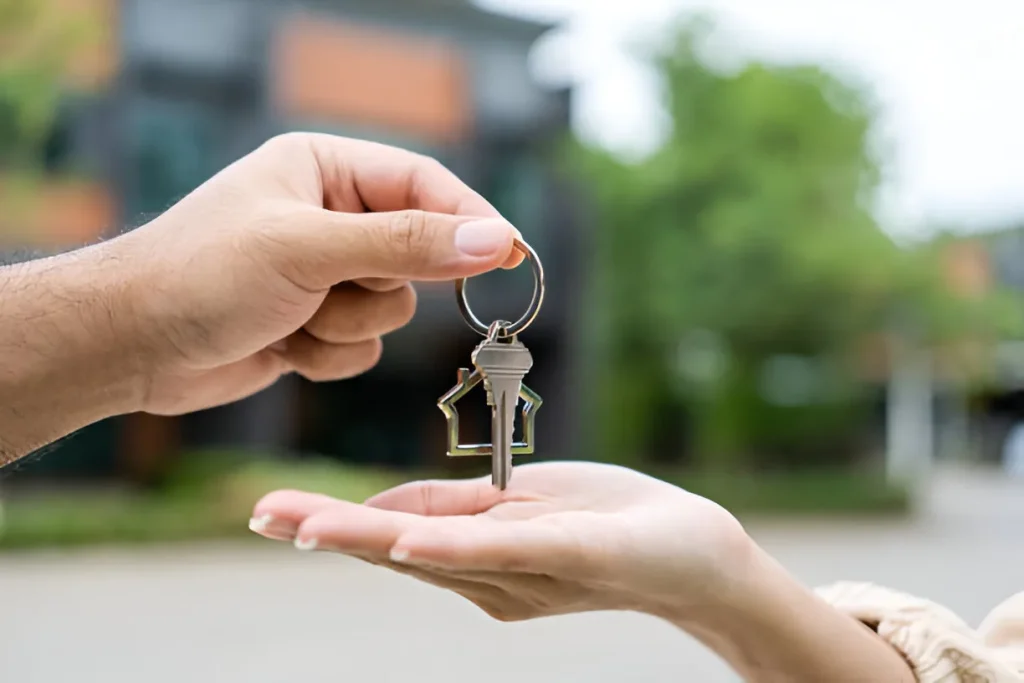Understanding Home Equity and How Home Equity Loans Work
Home equity has become an increasingly popular avenue for homeowners to leverage their property’s value, offering them opportunities to invest, purchase second homes, or fund renovations. Understanding how home equity works and the mechanics of home equity loans is crucial for anyone looking to access the equity in their home effectively. This article will guide you through the essential aspects of home equity, how to calculate it, and how home equity loans function, providing a comprehensive view of this financial tool.

What is Home Equity and How Much Equity in Your Home Can You Access?
Home equity refers to the value of your home minus any outstanding mortgage balance. Essentially, equity is the difference between what your home is worth on the current market and how much you owe on your home loan. For instance, if your home is valued at $400,000 and you owe $250,000 on your existing loan, your home equity would be $150,000.
This figure represents the portion of your home’s value that you truly own and can borrow against to access cash for various purposes, such as home improvements, debt consolidation, or even purchasing an investment property.
Calculating the equity in your home is a straightforward process. First, determine the current market value of your home, which can be assessed through online property valuation tools or a professional appraisal. Once you have established this value, subtract your current home loan balance from it. The formula is simple: Equity = Market Value of Your Home – Loan Balance. For example, if the market value of your home is $500,000 and your existing loan balance is $300,000, your usable equity would be $200,000.
Factors That Influence the Amount of Usable Equity
Several factors can influence the amount of usable equity you can access. One significant factor is the current market conditions, which can affect the value of your property. If property values in your area have risen, you may find that you have much equity available to borrow against.
Additionally, the type of loan you have may impact your equity; for instance, a home equity line of credit might allow you to access your equity differently than a traditional home equity loan. Other considerations include the repayment terms of your existing home loan and any additional liens on the property.
How Does a Home Equity Loan Work?
A home equity loan allows homeowners to borrow against the equity in their property. Essentially, it is a type of loan that uses your home equity as collateral. When you take out a home equity loan, you receive a lump sum amount based on the equity you have accumulated, and you agree to repay this amount over a specified period with a fixed interest rate.
The process typically involves applying for the loan, undergoing a credit check, and providing documentation regarding your income and the current market value of your home. This type of loan can be an attractive option for those looking to access a large sum of money for significant expenditures.
While both home equity loans and home equity lines of credit (HELOCs) allow homeowners to borrow against the equity in their property, they function differently. A home equity loan provides a one-time lump sum, while a HELOC offers a revolving line of credit that you can draw from as needed.
With a home equity loan, you have a fixed repayment schedule and interest rate, whereas a HELOC typically has variable interest rates and flexible repayment options, which can lead to different financial implications over time.
Home equity loans generally come with repayment terms ranging from five to thirty years. During this period, homeowners are responsible for making monthly payments, which typically include both principal and interest. The structure of these payments can vary; some loans may offer interest-only payment options for an initial period, which can be beneficial for borrowers looking to manage their cash flow.
However, it is essential to carefully consider these repayment terms, as they will directly impact your financial planning and obligations in the future.

How Can You Use Your Equity to Buy an Investment Property?
Home equity can serve as a powerful tool for those looking to purchase an investment property. By using the equity in your current home as a down payment, you can reduce the amount needed to secure a new loan for the investment property. For example, if you have $100,000 in equity, you can use this amount to make a substantial down payment, potentially increasing your chances of securing favourable loan terms. This strategy allows you to leverage your existing property to invest in additional real estate, which can be a lucrative opportunity.
Investing in property using home equity offers several benefits.
First, it allows homeowners to tap into the value of their existing home without needing to sell or refinance their current mortgage. Additionally, real estate can be a stable investment, providing rental income and potential appreciation over time.
By using your equity to invest in property, you can diversify your portfolio and create new streams of income, making it a strategic financial move. Furthermore, the interest on home equity loans may be tax-deductible, providing additional financial advantages.
Risks of Using Equity to Buy an Investment Property
While there are numerous benefits to using equity to buy an investment property, it is essential to be aware of the risks involved. One significant concern is the potential for market fluctuations, which can affect the value of both your current home and the investment property.
If property values decline, you may find yourself owing more on your loans than your properties are worth, a situation known as being “underwater.” Additionally, rental properties come with their own set of challenges, including maintenance costs and the risk of vacancies.
Therefore, it is crucial to conduct thorough research and consider your long-term financial goals before leveraging your home equity for investments.

Can You Use Equity in Your Home to Buy a Second Home?
Many homeowners wonder if they can use the equity in their property to buy a second home. Equity is the difference between what your home is worth and what you owe on your mortgage. If you’ve owned your home for several years, you may have built up a significant amount of equity. This available equity can be tapped into to help finance the purchase of another property.
To access this equity, homeowners can take out a home equity loan or a home equity line of credit (HELOC). The loan amount you can borrow depends on the amount of equity you have in your home. Lenders typically allow you to borrow up to 80% of your available equity. For example, if your home is worth $300,000 and you owe $200,000, you have $100,000 in equity. You might be able to borrow up to $80,000 to help buy a second home.
Using the equity in your property for a second home can be a smart financial move. It allows you to invest in real estate without needing a large cash down payment. However, it’s important to carefully consider your financial situation. Make sure you can afford the new mortgage payments along with any existing loans.
Conclusion
Home equity is the value of your home minus what you owe on your mortgage. It grows as you pay down your loan and as your home increases in value. A home equity loan allows you to borrow against this equity, giving you a lump sum of money to use for various needs, like home improvements or debt consolidation. Understanding how home equity works can help you make smart financial decisions and use your home’s value effectively.
FAQs
Home equity is the portion of your home that you own outright. It is calculated by subtracting your remaining home loan balance from the current market value of your property. As you make payments and your home value increases, you build up some equity.
You can use the equity in your home to access funds for various purposes, such as home improvements or paying off debt. By applying for a home equity loan, you can borrow against your property’s value. This allows you to use the equity to invest in property or other opportunities.
A home equity loan is a type of loan that allows you to borrow money based on the equity you’ve built up in your property. You receive a lump sum and repay the loan over time, usually with a fixed interest rate. This different loan can help you access your equity for various needs.
To access your equity, you can apply for a home equity loan or a home equity line of credit (HELOC). These options allow you to borrow against your property’s value and use the funds as needed. It’s important to understand how much equity you have before applying for a home equity loan.
You can use the money from a home equity loan for many purposes, such as making renovations, consolidating debt, or even investing in property. Many homeowners choose to invest in property because it can increase their overall wealth. However, it’s essential to ensure that you can repay the loan.
The amount you can borrow through a home equity loan is based on a loan-to-value ratio set by lenders. They typically allow you to borrow a percentage of your home’s appraised value minus what you owe on your mortgage. This means that if you’ve built up some equity, you may be able to access more funds.
If you cannot repay your home equity loan, it could lead to serious consequences, including foreclosure on your property. Since you’re putting your home up as collateral, failing to make payments puts your investment at risk. It’s crucial to assess your financial situation before taking out this type of loan.
Yes, it is possible to have multiple home loans at once, including a primary mortgage and a home equity loan. However, having more than one loan means you’ll need to manage multiple payments and ensure that you can repay each one on time. Always consider how much debt you’re comfortable handling before taking out another loan based on your property’s equity.
Need a home loan? Let’s chat.
Hit the button below to arrange a conversation with one of my loan specialists to find a deal that’s best for your situation.
We partner with over 50 lenders so you can find the perfect solution

Share on: